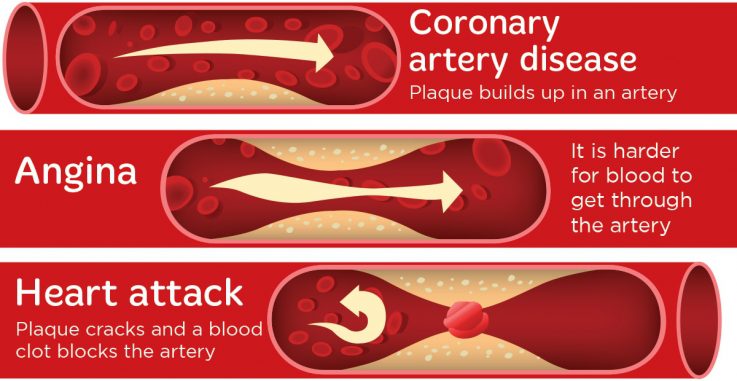Prevention of heart problems, cardiovascular diseases (angina and heart attack)
Çima pêşîlêgirtin? |
|
Pîvanên şopandinê |
Di malê da, monitor his pîvan regularly using a bathroom scale. Li doktor, various tests make it possible to monitor the evolution of nîşangir cardiovascular disease. For a person at high risk, follow-up is more frequent.
|
Tedbîrên pêşîlêgirtinê yên bingehîn |
Better to approach changes gently and prioritize, step by step. Your doctor will help you find the most important preventative measures to lower your risk.
|
Tedbîrên pêşîlêgirtinê yên din |
Acetylsalicylic acid (ASA – Aspirin®). Doctors have long recommended that people at moderate or high risk of having a heart attack take a low dose of aspirin every day, as a preventative measure. Aspirin prevents blood clots from forming. However, this usage has been dijwar. Indeed, data indicate that the risks of taking aspirin can, in many cases, outweigh its benefits.53. This designer drug can increase the risk of digestive bleeding and hemorrhagic stroke. For these reasons, since June 2011, the Canadian Cardiovascular Society (CCS) advises against preventive use aspirin (even for people with diabetes)56. Lifestyle changes are best, according to experts. The debate is not closed and research continues. If necessary, discuss it with your doctor. Note that this recommendation is for people who are at risk, but have not yet suffered from heart disease. If a person already has coronary artery disease, such as angina, or has had a previous heart attack, aspirin is a treatment that has been proven very well and the Canadian Cardiovascular Society recommends using it.
|










